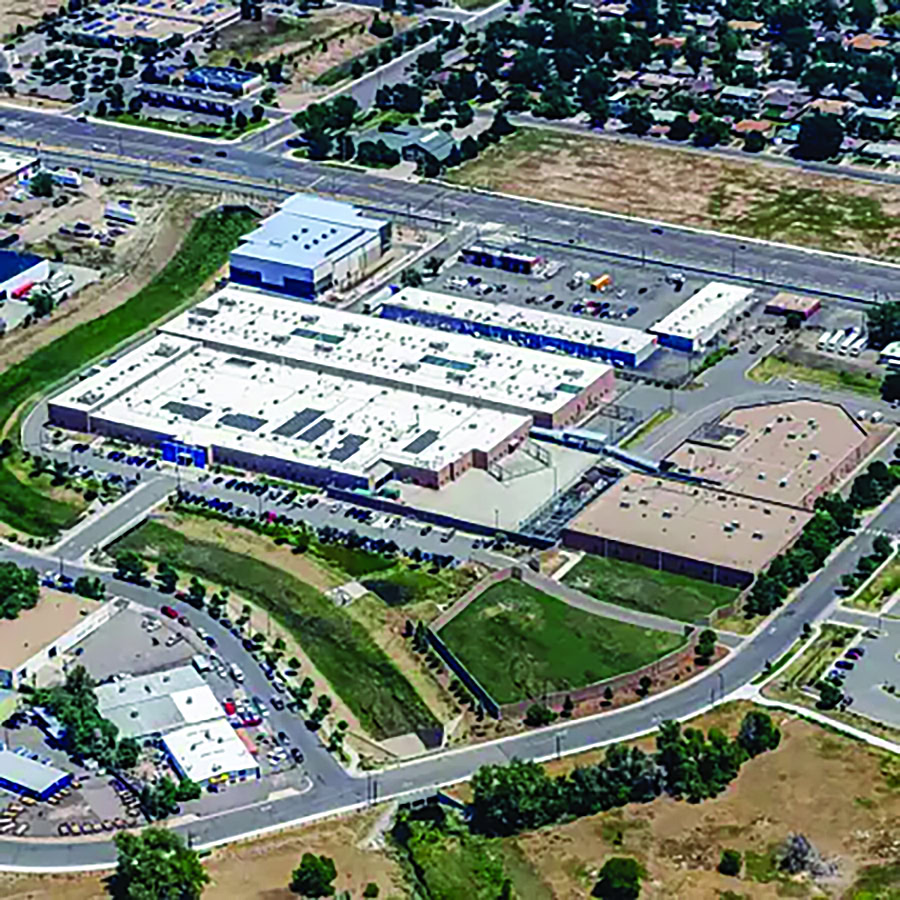
President-elect Donald Trump has been making sweeping claims for his goals when he is in office: a call for mass deportation known as Operation: Aurora, threats to “end DEI” (diversity, equity and inclusion) and a pledge to eliminate the Department of Education. In early December, Trump announced via his social media platform, Truth Social, that he’ll impose 25% tariffs on Mexico and Canada and hike current tariffs on China by an additional 10%.
How much of this Trump will accomplish remains to be seen. He made good on fewer than half of his campaign promises in his first term, according to a PolitiFact analysis.
Regardless, advocacy groups, government officials and nonprofits are preparing for an incoming administration that could have significant impacts on Boulder County, where Trump received less than a quarter of voters’ approval.
This is Part 1 of a two-part series. The next installment, publishing Jan. 16, will explore reproductive health and LGBTQ+ rights
Immigration and mass deportation
At campaign rallies, Trump repeatedly name-checked Aurora, home to an Immigration & Customs Enforcement (ICE) detention facility as well as a sizable population of migrants. When Trump stopped there in October, he announced Operation: Aurora, an initiative expediting the arrest and deportation of migrant gang members.

“In reality, the staffing of ICE is not enough for what is purported to be the plan,” said Anaya Robinson, Senior Policy Strategist at American Civil Liberties Union (ACLU) Colorado. “They need more bodies to do that and in doing so they would likely need to deploy national guards across the county.”
Governors have to consent to deploying the National Guard, Robinson said. Colorado Gov. Jared Polis, who also chairs the National Governors Association, has publicly pushed for Congress to preserve and protect gubernatorial authority over National Guard deployment.
Operation: Aurora targets immigrants who are convicted criminals living in the United States, but looming plans to expand deportation efforts include threats to defund noncompliant local law enforcement and eliminating the Obama-era Deferred Action for Childhood Arrivals (DACA) program.
“Colorado had 17,000 DACA recipients, and a lot of them ended up going to college,” said Violeta Chapin, professor at CU Boulder’s law school. “That really increased the number of students here at CU and across the state of Colorado to who were undocumented, who were enrolled in school.
“So when Trump came along [the first time] the question was, ‘Oh, no, he’s going to end DACA, right?’ He almost did. He tried to, but he didn’t kill it entirely. I think he likely will this time.”
An estimated 12% of Colorado’s labor force is foreign-born. Those laborers work “in the shadows,” Chapin said. While many industries, from farm work to restaurant service, are propped up by migrant labor, DACA provided a pathway outside of those industries.
Citizenship cases often involve information the federal government could use to have someone deported. Seeking asylum, applying for a green card and renewing an address for someone’s DACA citizenship require addresses to be disclosed.
Boulder is a sanctuary city, meaning that migrants who are witnesses or victims of crimes will not have their identity shared with immigration officials. Local law enforcement have moved to inform and protect undocumented community members.
“If we have a woman who’s sexually assaulted, she should be able to come forward and have justice done without fearing that she’s going to be deported as a result of reporting the crime to the police and coming to the Justice Center,” said Boulder County District Attorney Michael Dougherty.
The DA’s office, in cooperation with county law enforcement and community groups, created and distributed a “Know Your Rights” document in English and Spanish so migrants can learn what constitutes grounds for deportation.
“I want people to make sure they know what their rights are right now,” Dougherty said. “If the Longmont Police Department pulls [an undocumented immigrant] over for a traffic offense, are they going to be reported to ICE when they get the speeding ticket? It’s really important to understand what protections our laws do and do not provide.”
Dougherty is also concerned about protecting community members against hate crimes. In an email to community members and advocates, he wrote: “Our mission is to protect all people from threats, hate crimes, and violent acts — and we remain deeply committed to it.”

Tariffs
On Nov. 25, 2024, the president-elect announced via Truth Social that he intends to impose an additional 10% tariff on Chinese goods and 25% on all goods coming from Mexico and Canada.
Representatives for the Boulder Chamber said while there may be unintended consequences for local business, they’re skeptical of any sweeping changes to the way companies operate in Boulder.
“There are probably some tariffs that may provide some element of parity for some of our businesses and consumers,” said Jonathan Singer, policy director at the Boulder Chamber, “and others that may actually have the opposite of the intended effect and really hurt local businesses and consumers.”
Singer said the best prescription for Boulder businesses before Trump’s second term begins is a reality check with his first.
“We need to be cautious, but also skeptical of anything that would look different,” he said. “I think jumping into [speculation] is not a healthy place to be. We need to look at this in its totality and understand there’s a lot that can’t be done without the approval of our nation’s representatives.”
Josh Wolcott, owner of Vacuums R Us, a Boulder-based vacuum and sewing supplies store, says the tariffs make him nervous. Most of the components for Wolcott’s appliances come from Mexico.
Starting in 2018, the Trump administration enacted tariffs on steel and aluminum, as well as appliances like foreign-made washing machines. Wolcott absorbed the cost of the tariffs as a business expense that didn’t get passed on to his customers. But if more tariffs are levied, Wolcott said he won’t be able to shoulder additional costs.
“We’ll be passing those on with everybody else. I don’t think anybody’s absorbing anything this time,” he said. “What happened last time is, a lot of companies such as ourselves would get a [cost] increase, and we would take weeks to increase our prices in the hopes that something would change, which it didn’t.”
Wolcott said those increased prices won’t just come from foreign product lines or products with foreign components. Every business buys light bulbs, cleaning products, technology and other supplies with imported components. When the cost to operate starts to rise, Wolcott predicted all businesses will start to increase their prices.
On a policy level, Singer said businesses should organize around tax breaks and programs that will benefit local businesses and the area’s workforce as a whole. He again urged folks — whether immigration advocates or business owners — not to react to every word the president-elect says.
“It is politically, fiscally and psychologically unwise to jump at every shadow,” Singer said. “The smartest thing any of us can do is respond to what is in front of us when it’s in front of us, because if we try to respond to everything all at once, we’re going to be stuck in neutral or going backward.
“Maybe [there is] too much of my own opinion in there, but that’s what I’m telling everybody. We can’t let anybody make us crazy.”
